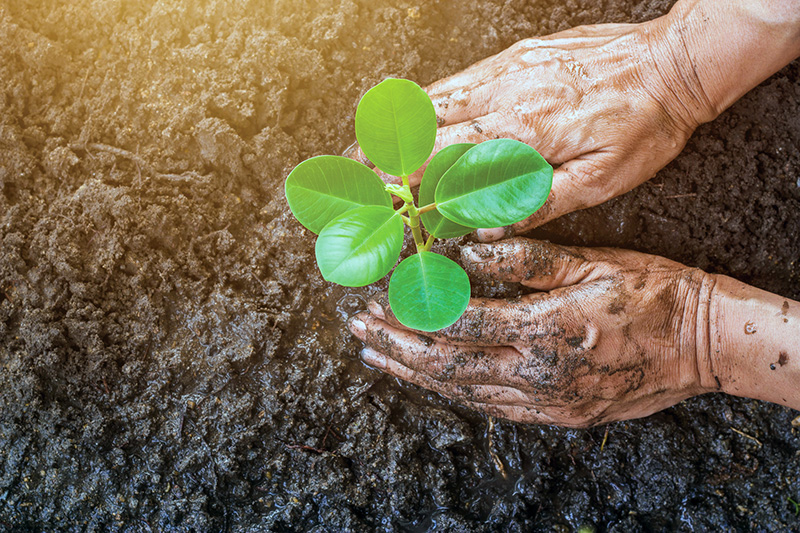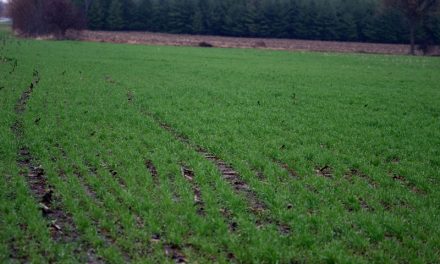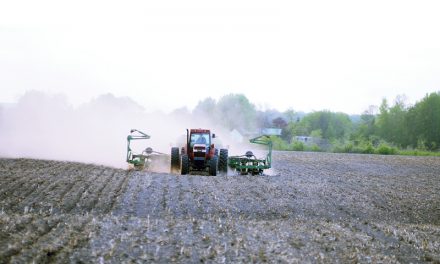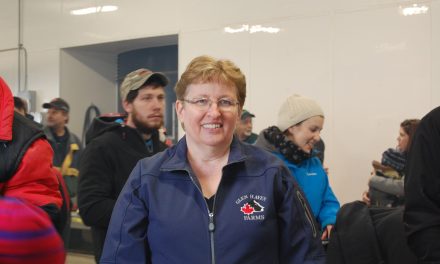By Sandy Casselman
AgriNews Staff Writer
CORVALLIS, OREGON – “By ignoring the needs of the vital living ecosystems directly beneath our feet, we can expect to lose much of the world’s topsoil within a single generation and see a needless rise in the accumulation of greenhouse gasses in the atmosphere.” – Post Carbon Institute
The Post Carbon Institute, located in Corvallis, Oregon, hosted a two-part “Dirt on Soil” webinar series with the first part airing on June 16. The second part was set to take place on June 23. They are roughly 75 minutes each.
“Healthy soil plays a vital role in enabling resilient agriculture that produces abundant, secure, healthy food for a growing population,” the event material states. “High functioning soils prevent runoff, erosion, degradation of water and air quality, and more, and have a direct impact on our changing climate by sequestering large amounts of carbon. They may also help improve the nutrient density of our food.”
More than 1,000 people from around the world attended the initial discussion, which included Bianca Moebius-Clune, who is the director of American Farmland Trust (AFT)’s National Climate Initiative, and David Montgomery, who is a geologist, as well as a popular science writer. Montgomery has authored Dirt: The Erosion of Civilizations and Growing a Revolution: Bringing Our Soil Back to Life. He’s co-authored The Hidden Half of Nature: The Microbial Roots of Life and Health and, most recently, What Your Food Ate: How to Heal Our Land and Reclaim Our Health with his wife and partner, Anne Biklé.
The institute’s executive director, Asher Miller, led the discussion, inviting both Moebius-Clune and Montgomery to share their knowledge and expertise about soil health and its importance for regenerative farming, and regenerative farming’s potential impact on the world’s ability to feed everyone, while also protecting the environment to ensure the sustainability of agriculture in the future. Essentially, the discussion was meant to provide answers for why soil matters and how the health of soil has a direct correlation to the climate crisis.
“Soil health is near and dear to my heart. I have been working on soil health for the last 20 years now and it’s been exciting and insightful and there’s a lot of amazing stuff going on across the country and across the world,” Moebius-Clune said. “Soils are the foundation of everything that keeps us alive.”
She talked about the challenges facing the world today and the part soil health can play in becoming part of the solution. She said the foundation of society is functioning soils.
“We defined our health as the capacity of the soil to function as a vital living ecosystem that sustains plants, animals, and humans, which is to say it sustains us all,” Moebius-Clune said. “So, we need to keep our soils functioning and healthy and what we’re finding is that farmers can actually do that; farmers can be a solution for climate change, for all of these other issues, by transitioning to practices that work to keep our soils healthy; and we do that basically by building soils that provide habitat for organisms to thrive. So, take a handful of soil, there will be more organisms in that handful of soil than there are people on Earth, so that’s a megacity, and those organisms keep that soil functioning. That’s a critical message that we all want to walk away with.”
Moebius-Clune said non-farmers can also do a lot to support agriculture by keeping soil healthy. She provided both a breakdown of what the downward spiral of soil degradation looks like, as well as a breakdown of its opposite, the upward spiral of what she calls a win-win soil health management system. The system she described is based on the idea that there are four soil health principles, including maximizing continuous living roots, maximizing biodiversity, maximizing soil cover, and minimizing disturbance, such as tilling.
“The act of plowing, one of the iconic acts of agriculture in many parts of the world, disturbing the ground to plant and grow our crops is something that is a very unnatural act. Nature tends to clothe herself in plants, and there’s a long-term symbiosis, mutually beneficial relationships that have developed between life in the soil and plants,” Montgomery said. “What I learned in writing “Dirt” was that the disturbance of the soil over the long run maintained over generations of farming practices can degrade soil organic matter and result in soil loss that in any one year can be fairly minor, but if maintained year after year can really add up.”
Montgomery spoke a bit about the part soil erosion has played in past societies, noting that because it happens so slowly, it’s often overlooked and not given the attention it deserves. He said the discussion on soil health is relatively new, or unheard of, for most people.
“How many of us have thought about soil as having health? That’s a new idea in the last few decades,” he said. “Soil erosion and degradation has been one of the most impactful but most neglected elements of human history since the last ice age. ‘Dirt’ was my attempt to basically shine a light on that and illustrate how important maintaining fertility and productivity to health of our soil is for human societies.”
Montgomery echoed Moebius-Clune, noting that it’s not necessarily more land that’s needed to keep up with population growth, but better use of the land that’s available. He said there are ways to farm that build resilient land, that can produce plentiful harvests that will feed large populations. In addition to tilling, which he said degrades soil organic matter over time, leaving the land vulnerable to erosion by wind and rain, there are other conventional farming practices that contribute to making soil unhealthy. As an example, he mentioned the over reliance on synthetic fertilizers and pesticides, as well as specializing in functional monocultures, where there’s a focus on just one or two crops.
The discussion continued, noting some of the ways in which non-farmers, farmers, and governments can positively impact soil health, which in the end benefits everyone. There was also significant discussion on how addressing soil health issues can positively impact climate change, as well.
“The more regenerative farmers I’ve met and the more I’ve come to respect their ingenuity and their ability to adapt general principles, like the principles of soil building, to the specifics of their farms, the more I become impressed with how we can actually solve this problem,” Montgomery said. “But it’s got to work for the farmers as well as for the land to be sustainable in terms of farming and I think it can if we can adopt a system that is based on regenerative principles.”
He then described what that might look like and how it can benefit farmers in the long run. In addition to the benefits for the environment, he said it can save a significant amount of money, as well.
“It’s hard to actually identify the downside of building soil health and I think that’s partly why there’s a lot of interest in it these days,” Montgomery said.
The two-part series was free to attend, or attendees could also choose to donate to the Post Carbon Institute. To register for the series and to gain access to the recordings, visit postcarbon.org. The site’s “Dirt on Soil” page includes a link to a short 2.5-minute YouTube video, “Soils: Our Ally Against Climate Change” from the Food and Agriculture Organization of the United Nations.
The second part of “Dirt on Soil” is set for June 23, and it will focus on how individuals and communities can regenerate and protect healthy soil locally, nationally, and globally. The guest speakers for part two include Don Smith, a speaker, teacher, and student of regenerative agriculture, who shares his knowledge via the Kiss the Ground (kisstheground.com) initiative, Linda Bilsens Brolis, who is the senior project manager for the Institute for Local Self-Reliance’s Composting Initiative, and Reginaldo Haslett-Marroquin, the founder and co-executive director of the Regenerative Agriculture Alliance, and co-owner and co-founder of Regeneration Farms, LLC-Tree-Range Chicken. Haslett-Marroquin has written In the Shadow of Green Man: My Journey from Poverty and Hunger to Food Security and Hope.












